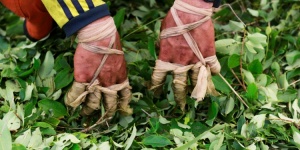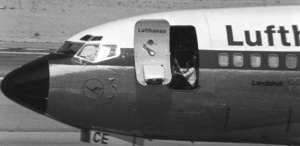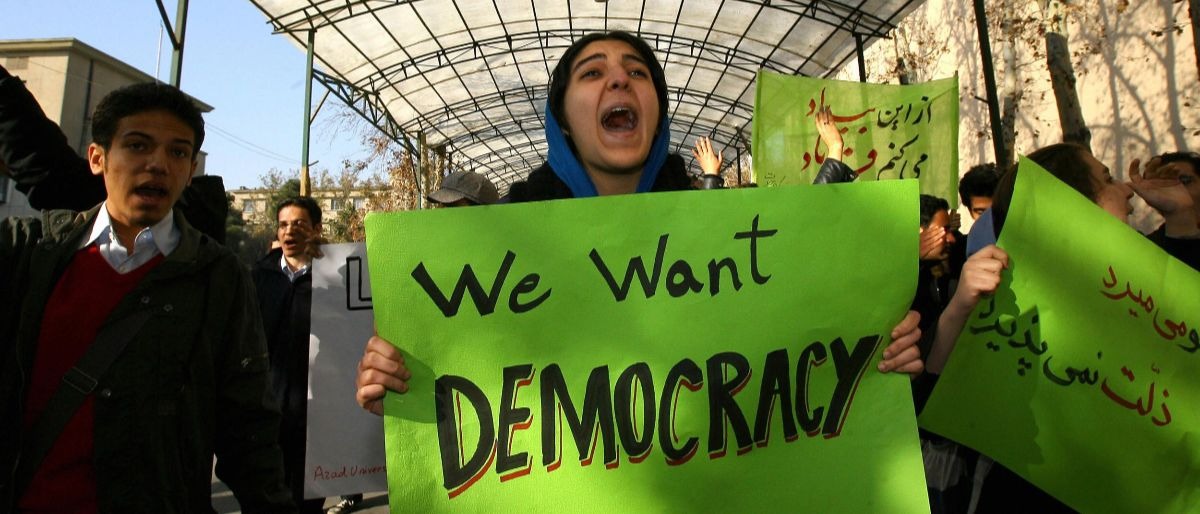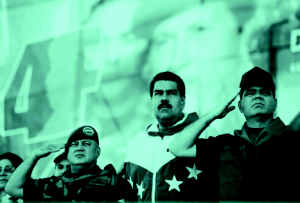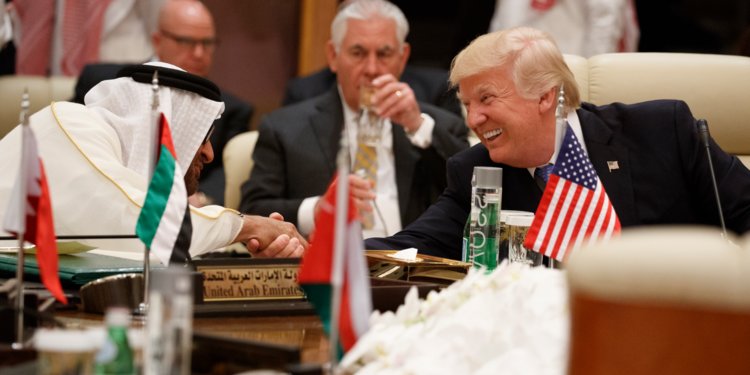
President Donald Trump shakes hands with Abu Dhabi’s Crown Prince Mohammed bin Zayed Al Nahyan during a meeting with leaders at the Gulf Cooperation Council Summit, at the King Abdulaziz Conference Center, Sunday, May 21, 2017, in Riyadh, Saudi Arabia. Trump will use the nation that is home to Islam’s holiest site as a backdrop to call for Muslim unity in the fight against terrorism Sunday, as he works to build relationships with Arab leaders.AP Photo/Evan Vucci
Last Monday I attended the Inaugural Annual Gulf International Conference in Washington D.C. where Saudi-American journalist Jamal Khashoggi was scheduled to speak on the importance of a free press.
However, over the weekend, Khashoggi disappeared while visiting the Saudi Embassy in Istanbul. On Monday while at the conference, the official word was that the Saudi government had no knowledge of the situation but would examine it closely.
At the conference, Khashoggi’s presence and spirit were palpable, but most participants believed Khashoggi was murdered for speaking out against the regime’s reign of terror in Yemen. Since the conference, the Saudi government’s position has shifted from denial to assertions that the journalist died in a fist-fight during interrogation.
It is no coincidence that the President of the United States took his inaugural international trip to Saudi Arabia, while predecessors chose neighboring countries like Canada or Mexico.
President Trump voiced his friendship with the Kingdom while still on the campaign trail, and continued his support from the beginning of his presidency, making it clear that he wanted a strong diplomatic and economic relationship with the Saudi government.
Although President Trump espoused the importance of a strategic partnership with the Saudis as a way to stabilize the region, many have questioned his motivation. In 2001, he sold the entire 45th floor of Trump World Tower to the Kingdom of Saudi Arabia for $4.5 million. It is this relationship that many believe has, at least partly, clouded his judgment. Trump spent the week supporting the Crown Prince and King, claiming they denied involvement and pledged to investigate and hold accountable those who killed
Jamal Khashoggi.
The U.S. has a complicated relationship with Saudi Arabia and the death of Jamal Khashoggi makes it even more complex.
The Saudis invest heavily in the U.S. economy and have traded in excess of $23 billion per year. However, the Saudi government is also said to have economic ties to terrorist organizations, not to mention an abysmal human rights record. The U.S. government has repeatedly overlooked both the terror funding and human rights violations.
The current administration is said to have even greater motivation to overlook human rights issues. The president’s son-in-law and Senior Policy Advisor to the Middle East, Jared Kushner has close relations with the Crown Prince. Additionally, the U.S. has secured a multi-million dollar arms deal, which the President touts as a boom for defense jobs (this remains to confirmed).
Complicating the relationship and U.S. response is the fact that Khashoggi was a U.S. resident who wrote for the Washington Post, but not a U.S. citizen, justifying a more hands-off approach from the President.
At the conference, congressmen, journalists, and retired ambassadors resoundingly supported punitive action by the U.S. against the Saudi regime. Many speakers shamed President Trump and called for the United States to cut diplomatic ties with the Saudis, enact sanctions, and put human rights ahead of arms deals. The consensus was that continuing to support the Saudi regime after such a blatant act of violence designed to silence a critic called into question not just the ethics of Saudi Arabia, but also the ethics and values of the U.S.
Would the U.S. put an arms deal ahead of human rights, knowing that the arms would be used in the Saudi’s campaign against the people of Yemen? One week after the conference, the truth regarding Khashoggi’s disappearance is beginning to emerge, and a clearer picture of the Saudi regime is coming into focus.
One week ago, the Saudi government denied any involvement in Khashoggi’s death, and today they reiterate their denial of their role in attacks on civilian targets in Yemen. There is undisputed evidence
that the Saudis were involved in Khashoggi’s death and that of many civilians in Yemen, yet the regime continues to stall, deflect, lie, and justify their actions, while the U.S. and international community look the other way.
It is time to shine the light clearly on the Saudi government’s actions and stop their terroristic activities and human right abuses.
It is time to hold them accountable for their military campaign in Yemen, the financial support of terror groups such as the Taliban and Hamas, and the death of Jamal Khashoggi. No doubt, a sustainable solution that puts human rights ahead of violence is going to be a difficult solution to implement. But if we put an arms deal first, worsening the humanitarian crisis in Yemen, disrespecting basic freedoms, then we are complicit.



